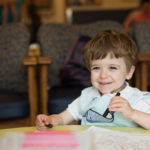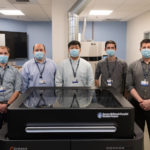From frustration to confidence: Training helps parents replace their baby’s NG tube
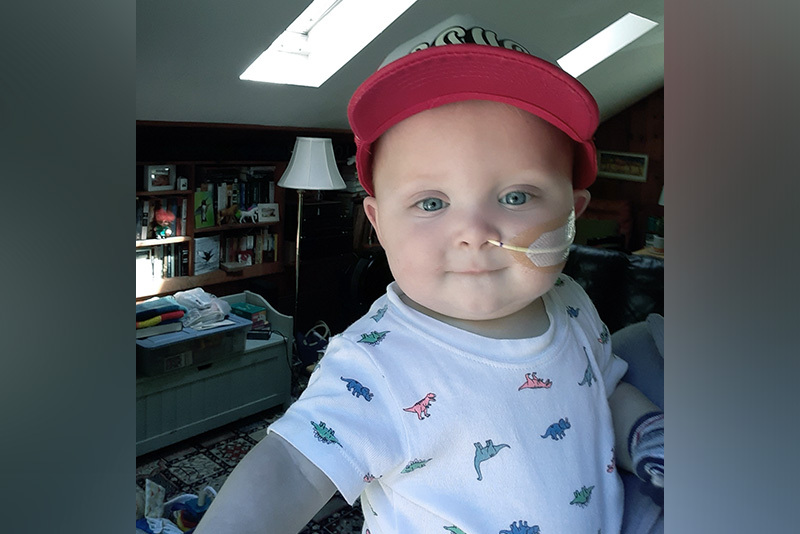
When the parents of 10-month-old Miles Couture were first told he would need a nasogastric (NG) tube to receive his nutrition, “it was heartbreaking,” says his mom, Catherine. Miles, who was born at just 26 weeks, had struggled with being able to feed on his own. But he seemed to be taking more by mouth. After a modified barium swallow study showed that he was still aspirating (inhaling liquid into his lungs), “it felt like a huge setback,” says Catherine.
An NG tube delivers nourishment through a child’s nose and into their stomach. But, like many babies, Miles soon pulled the tube out, which required a trip to the Emergency Department at Boston Children’s Hospital. Clinicians replaced the tube — and Miles promptly pulled it out again. After several more visits to the hospital, the family was exhausted and frustrated.
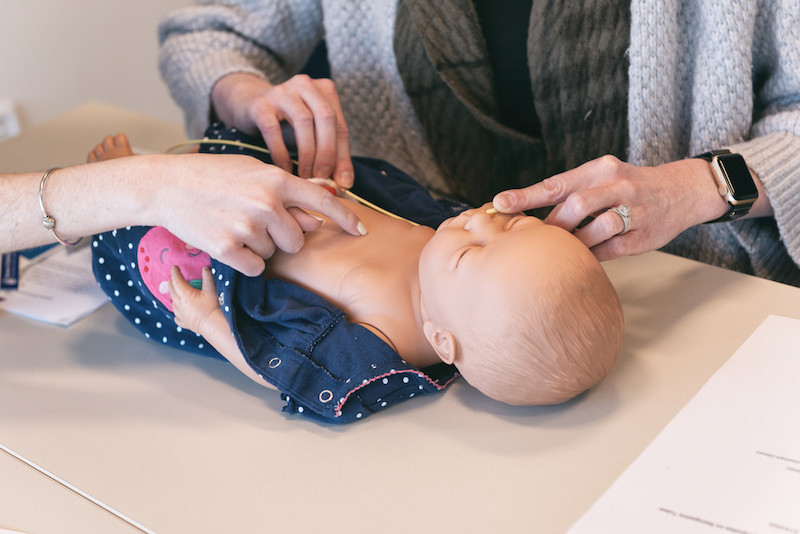
Practice makes perfect
Fortunately, Catherine and her husband, Steve, learned about a program offered through Boston Children’s Aerodigestive Center and the hospital’s Simulation Program. Led by nurse practitioner Sarah Connearney and registered nurse Paige Kennedy, the two-hour class gives parents and caregivers the opportunity to practice placing the NG tube into a lifelike baby-sized mannequin.
“Parents can have a lot of anxiety managing their child’s NG tube at home, especially replacing it,” says Connearney. To help families feel more confident with their own child, she and her colleagues in nursing and social work teach the necessary skills, guide them through the process, and offer plenty of time to practice on the high-tech mannequins, which have the capability to cry, breathe, and even turn blue.
“We try to be flies on the wall and allow the parents to work together to place the tube and troubleshoot any issues,” Connearney explains. Afterward, they ask families about the experience: How did that feel? What went well? What do you wish went better?
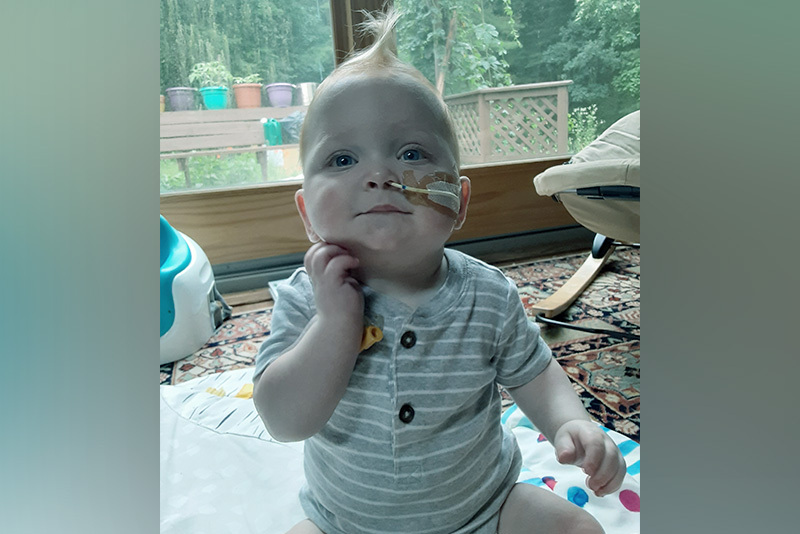
A new sense of control
For the Coutures, the experience was a gamechanger. “We left very confident about what do to in both best- and worst-case scenarios,” says Steve. “The class has saved us so much time and frustration.”
Indeed, within a day of the class, Miles had pulled out his NG tube yet again. But instead of making another trip to the hospital, his parents were ready to replace it themselves. After a few tries, Steve successfully placed the tube — a huge relief for the family. “We learned that it really isn’t complicated and the risk of hurting our son is extremely low,” says Steve, who admits they likely would have had the tube removed permanently without being able to replace it themselves.
The experience has given Steve and Catherine another kind of confidence, too. “As parents, we’ve had so little control over our son’s health,” says Catherine. “This class has given us some sense of control. That’s the real gift of it.”
Today, Miles is gaining weight and babbling like any other baby his age. And Catherine and Steve are grateful for the education and training they’ve received. “I’m in touch with other families of babies with NG tubes, and unfortunately, they haven’t gotten the level of support we have at Boston Children’s,” says Catherine. “This is such a powerful tool for families to have.”
The NG-tube training class is available to eligible parents and caregivers of patients in the Aerodigestive Center. Learn more.
Related Posts :
-

Taking a leap of faith: Jack says goodbye to his G-tube
As they waited for their son Jack’s appointment, Marika and Josh Reuling had no indication that July 17, 2018, would be ...
-

Boston Children’s Simulator Program steps up during COVID-19
In the early days of the COVID-19 pandemic, hospitals scrambled to adapt and prepare. Amid the chaos, the Boston Children’...
-

'Huggable,' a social robot for kids, eases hospital stress
Children confined to the hospital often feel lonely, bored, or scared, and must cope with pain and homesickness. They may ...
-

Six ways to keep kids with aerodigestive disorders healthy
There’s probably not an adult or child who hasn’t experienced the stuffy nose and difficulty swallowing associated with ...


